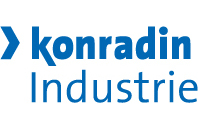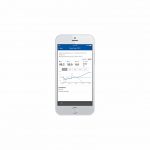Distributed control system (DCS) workstations in a control room typically allow operators to access data quickly from whichever systems fall within their realm of responsibility. Should a problem arise, the operator is directed to displays from which they can troubleshoot and take appropriate remedial action. However, what happens when an operator needs assistance from other plant personnel who are outside the control room yet require access to the same data? This is one of the challenges mobile applications are helping to solve. By securely delivering the right information to the right people, well-designed mobile platforms are transforming the way in which data on the safety, reliability and performance of devices and facilities is accessed and consumed.
Data access beyond the control room
In industrial applications, mobile solutions are being integrated into automation workflows, in order to increase efficiency and improve plant operations by making operational intelligence securely available on demand, beyond the confines of the control room. Mobile solutions enable real-time process values, diagnostics, trends and alarms from multiple sources to be monitored by relevant personnel anywhere at any time. The ability to monitor operations in this way – without being restricted by regular business hours or manual reports, and without being tied to a particular computer – provides insights that enable faster and better-informed decisions.
Multilayered mobile solutions that collect data from historians and other systems require significant engineering effort for configuration and maintenance, primarily because they are not tightly integrated with a particular DCS or historian. This can present a significant barrier to implementing such solutions. However, platforms like Emerson’s DeltaV Mobile seamlessly integrate with existing platforms in such a way that no additional DCS configuration is required, and there is no separate database of tags to manage.
Furthermore, the tight coupling with the DCS leverages existing configurations, equipment hierarchies, diagnostics, control logic and alarm rationalisation by bringing what has already been configured in the DCS to simplified, intuitive mobile views. These mobile platforms provide the same rich information that is shown on the operator console – any parameter or alarm that has been configured in the DCS. The alarms update in real-time, exactly as they would on the DCS operator workstation.
Filtered alerts
A wide variety of roles are incorporated within manufacturing and process industry organisations; each one requires access to different information and with varying degrees of urgency. Well-designed mobile solutions are more than just remote views of an existing DCS – they simplify information which is often scattered across various business systems and databases in intuitive mobile screens that are easy to read and navigate, and that are filtered to meet the user’s specific needs.
Mobile applications provide customisable filtering via a configurable series of watch lists and notifications, which can be used to cover a broad range of equipment, user roles and times when the user is active in plant operations. This can include periods when they are either physically present in the plant but away from their workstation, or when they are away from the plant but still on-call. A customisable interface provides data filters such as area, unit, equipment, module or alarm priority. This resolves the problem of irrelevant nuisance alerts and allows personnel to receive only essential, actionable notifications.
Furthermore, the alarm information supplies important context, such as trends of relevant process values or recommended actions. With this added context, users can make better decisions regarding operational events that could affect bottom-line business results.
Extended collaboration
One advantage of mobile applications over traditional DCS operator workstations is the way in which they facilitate information sharing and collaboration. Mobile solutions connect plant managers, automation supervisors, process engineers and subject matter experts with access to essential real-time data, contextualised alarms and historical trends that can be shared easily, thereby extending secure organisation-wide expertise beyond the plant.
Screenshots of alarm details, process data and trends can likewise be shared simply by e-mail or text, even if the recipient does not have the mobile application. Sharing a link with other users via an e-mail or text message directly connects recipients to the same live mobile view, so that the sender and recipient can view the same synchronised information which is updating simultaneously in real-time.
Data security
Transferring critical data from the plant floor in a secure manner is a top priority for companies everywhere. Thus, cybersecurity is traditionally a key consideration in the design of mobile platforms. Data transfer to mobile devices utilises several crucial aspects of secure connectivity, including multi-level segmented architectures, user authentication and authorisation or data encryption.
Whether viewing lists on a mobile device or graphics in a web browser, mobile solutions for monitoring are strictly read-only, preventing users from inadvertently executing operations. Process and diagnostic data is sent to intermediate, secondary servers that are located above the DCS or automation control network and isolated by firewalls. Mobile platforms access these servers via a secure VPN or Wi-Fi, creating a built-in means of transferring plant data securely.
Secure mobile platforms also provide whitelisting and data encryption as part of their multi-layered network security features. In addition, users can connect to multiple DCSs or other systems using OPC (the interoperability standard for the secure and reliable exchange of data in the industrial automation space). This enables them to obtain real-time data and trends from a growing number of sources and translate them into consolidated views.
Improving business results
DeltaV Mobile is reshaping the status quo by putting the digital plant in the palm of operators’ hands, wherever they happen to be located, thus empowering them to improve operational performance, safety and reliability. By making it easier for managers and engineers to share critical information, it helps to streamline workflows and improve business results. DeltaV Mobile provides a number of key benefits in the digital plant environment, for example operations managers can maintain high visibility on operations, monitor critical process values, KPIs or alarms for the entire site, receive notifications of critical alarms and communicate with the team to resolve issues. Safety engineers can monitor safety-critical data and alarms for specific responsibilities, maintain situational awareness by receiving notifications and view alarms in real time, monitor safety instrumented functions (SIF) such as bypasses or partial stroke tests as well as critical suppressed alarms. Process engineers can access and view critical real-time data, alarms and trends in order to diagnose issues, evaluate what happened by seeing alarms in context with process information, obtain notifications for critical alarms, quickly communicate issues and troubleshoot with operators and remote experts. Operators can maintain situational awareness while away from the control room by receiving critical notifications, respond in the right way by always having access to vital alarm information that includes relevant process data and recommended actions, and collaborate easily and securely by sharing critical alarms and process data with SMEs, no matter where they are located.
Online search: cpp0218emerson
Hall 9.2, Booth D41










